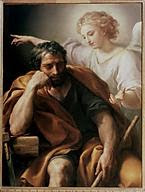Why I'm Not The Same Christian As I Used To Be, Part I
I want to write a series of blog posts describing my move from an unhealthy, exclusive, unintentionally privileged form of Christianity to what I believe to be a more robust, inclusive, Christ-like spirituality.
I am not claiming that my way is the right way, I am simply writing this in the hopes that someone may read this and identify with my story.
Today my mantra is simple:
Love Always Wins.
But I didn’t always believe this.
As a young man, I was conditioned to believe that only the strong survive. That race, and economics, and power and influence wins. I believed that faith and belief in an invisible deity that apparently cared little for “his” supposed creation (as evidenced by the genocide, wars, racism, etc. that I experienced all around me growing up in the 1980’s) was a sign of weakness. I cared little for anybody other than myself or anyone who could benefit me in some way. I aligned myself with the political conservatism of the day, I championed “Reaganomics” and fancied myself a real life Alex Keaton (Google him)
I am embarrassed to write these things, but confession is good for the soul (so they say).
When I finally became a “Christian” in the early 1990’s as an act of desperation – I really believed I would die if something didn’t change – I aligned myself with the evangelical tribe. I owed them my allegiance after all; they helped me find Jesus. The God of evangelical Christianity fit nicely into my narcissistic world: I simply traded my self-centered paganism for a self-centered piety. Blessing and provision was available to all! As long as you believed, behaved and looked the right way: specifically, white, middle class, theologically fundamental, Republican, citizens of the Christian subculture. I remember throwing away all of my “secular” records, tapes, books, magazines and videos; I would no longer allow the “world” to contaminate me. I had been part of the performing arts world for many years prior to my “conversion;” no longer. Secular theatre was prohibited: it promoted violence, profanity and, worst of all, was populated with homosexuals.
My young adult version of evangelical Christianity, intentionally or not, taught me that some of us were “in,” and the rest were “out.” And by out, I mean hell-bound. The only proximity I was to have with “sinners” was in the context of sharing Christ with them in hopes that they too would be “saved.”
In my evangelical subculture I learned to hate. Oh, we didn’t call it that, but that’s exactly what it was: homosexuals, Muslims, Democrats, drug dealers, gang members, communists, feminists, Catholics, all hell-bound unless they repented and left the dark side.
After several years of this, I started to feel uneasy. In God’s grace and mercy, I was shown that much of what I was believing and living for was not very “Christian” at all.
I missed my records. I had some really good records.
And even though I was still a privileged, racist, homophobic, misogynistic jerk, something was beginning to change.
It took nearly losing my life to open my eyes.
I was working the night audit shift at the Days Inn one night when four black makes barged in brandishing firearms and demanding money. I was forced to lie face down on the ground and a shotgun barrel was pushed into the back of my head, breaking my glasses and causing my life to flash before my eyes. I wasn’t harmed, at least not physically, but I struggled with a deep fear of African American men for some time following this encounter. My breakthrough occurred when I began teaching English to predominantly African American students in a Title 1 high school. I began to see these mostly poor young adults with a new set of eyes. Not only did they struggle economically, but many of them struggled with addictions; learning disabilities; low self-confidence; sexual issues, often as the result of some form of abuse; little or no spiritual direction; and a general lack of hope regarding their future.
This led me to reevaluate everything I had ever believed regarding white, middle class, straight, evangelical privilege.
I began to wonder where my students fit in to my Christian worldview. And I discovered that they didn’t. They couldn’t.
I was faced with a dilemma: abandon my faith or take a good, long look at what I had been believing and humbly acknowledge that I had royally missed the mark.
I chose the latter, and from that moment forward, everything changed.
I’ll delve into that tomorrow.

.jpg)

Comments
Post a Comment